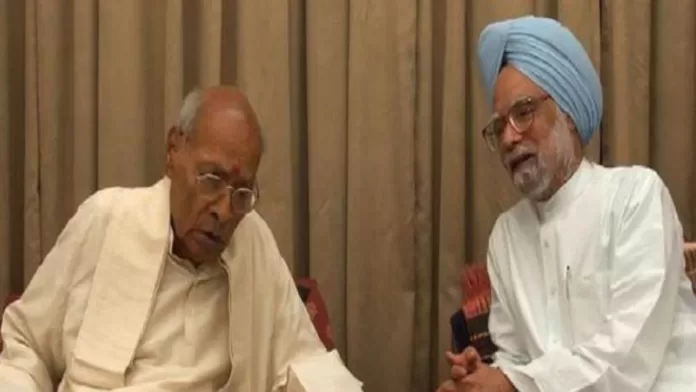On May 21, 1991, during the Lok Sabha elections, former Prime Minister Rajiv Gandhi was assassinated. By June 1991, after the election results, it became clear that the Congress party had won 244 seats, ensuring its formation of the government. Following Rajiv Gandhi’s death, Sonia Gandhi distanced herself from politics, leading to a search within the party for a new Prime Minister. Initially, Shankar Dayal Sharma was the first choice, but he declined the position. Subsequently, P.V. Narasimha Rao’s name emerged, with consensus forming within the party.
Before becoming Prime Minister in 1991, Narasimha Rao had held various ministerial positions such as Health, Education, and External Affairs, but he lacked experience in the finance ministry. Two days before taking office, Cabinet Secretary Naresh Chandra presented an eight-page note outlining India’s dire economic situation.
In this context, Narasimha Rao asked his advisor, P.C. Alexander, to suggest someone with international recognition for the position of Finance Minister. Alexander first suggested I.G. Patel, former RBI Governor and Director of the London School of Economics. However, Patel declined due to his mother’s illness. It was then that Alexander recommended Dr. Manmohan Singh’s name.
On the day before Narasimha Rao’s swearing-in, Dr. Manmohan Singh received a call offering him the position of Finance Minister. Initially, he thought it was a joke and dismissed it. But just hours before the swearing-in ceremony, Narasimha Rao called him again, saying, “I want to make you my Finance Minister. If we succeed, we will share the credit, but if we fail, the blame will be on you.”
Narasimha Rao’s decision to appoint Dr. Singh brought a new life to the Indian economy. By 1990-91, the Gulf War had driven up oil prices, severely impacting India’s finances. The country’s foreign exchange reserves rapidly dwindled, and despite borrowing from the IMF, India was left with less than a billion dollars in reserves, barely enough to cover three weeks of imports.
Amidst this crisis, Finance Minister Dr. Manmohan Singh announced the policy of liberalization on July 24, 1991. His budget marked the beginning of a revolutionary shift in India’s economic strategy. Dr. Singh ended the License Raj, removing several restrictions on companies, and implemented changes in the import-export policy aimed at easing import licensing and boosting exports. Foreign investment was encouraged, and tax exemptions were introduced for software exports under Section 80HHC of the Income Tax Act.
This historic budget is considered one of the most significant events in modern India’s history. Thanks to Dr. Singh’s economic policies, India’s foreign exchange reserves grew from less than a billion dollars in 1991 to 10 billion dollars by 1993. By 1998, the reserves reached 290 billion dollars, demonstrating the success of his reforms.
Shashi Rai














